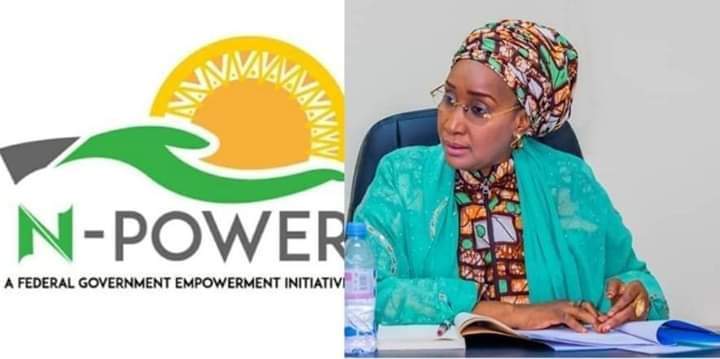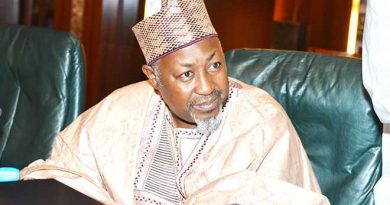Matters Arising From Oil Discovery In Kolmani
History was made on Tuesday when President Muhammadu Buhari inaugurated the commercial production of crude oil and gas from the Kolmani oil well which straddles Gombe and Bauchi State, effectively breaking the jinx that northern Nigeria doesn’t have hydrocarbon deposits in commercial quantity. Speaking at the event, the President said, “We are pleased with the current discovery of over one billion barrels of oil reserves and 500 billion cubic feet of gas within the Kolmani area… This is indeed significant considering that efforts to find commercial oil and gas outside the established Niger Delta Basin were attempted for many years without the desired outcomes”.
The commercial production of crude in this new oil field will definitely help the country satisfy local fuel consumption needs as well as meet the OPEC quota. Also, the resultant geographic balancing of resources will go a long way in easing tensions in the country, even though geology isn’t something that can be merely wished into reality. Earlier on February 2, 2019, the President led top government functionaries to flag off the Spud In, stating that the development signals “a new Nigeria with balanced resources distribution, diverse economic activities and sustained energy and security”. He emphasized that “oil and Gas remain critical to the Nigerian economy of today and the future. It remains key to the successful implementation of our budget at all levels of Government”.
The four Kolmani oil fields, which lie in the Gongola Basin of the Upper Benue Trough, were initially awarded to Shell and Chevron in 1993 as Oil Prospecting License 809 and 810 and Oil Mining License 112 and 118. After prospection activities, these oil majors reported the sub-commercial discovery of hydrocarbons in their blocks and subsequently pulled out of the deal. According to erstwhile Group Managing Director of NNPC, Maikanti Baru, these international oil companies found 146 feet of hydrocarbon sand in Kolmani River-I Well Prospect estimated to contain about 33 billion standard cubic feet of gas. He was however quick to add that Shell and Chevron did not investigate deep targets as their drilling was based on 2D seismic data. As it turned out, the NNPC Frontier Exploration Services and its partners seem to have succeeded where international oil companies failed.
The coy explained that the feat was a result of an aggressive exploration that entailed the deployment of state-of-the-art hydrocarbon derisking technologies, including magnetotelluric technology, air-borne-based stress field detection technology, and micromagnetic analysis, among others. This birthed an integrated development project the first phase of which comprises the siting of a refinery with the capacity to process 120,000 barrels of crude oil, a gas processing plant with 500 million standard cubic feet of gas capacity, a power plant with 300 megawatts capacity and a fertilizer plant able to produce 2500 tons of fertilizer. At the ceremony to start the oil project on Tuesday, Buhari stated that it is a credit to his administration that “at a time when there is near zero appetite for investment in fossil energy, coupled with the location challenges, we are able to attract investment of over $3 billion to this project”.
Without disparaging the local investors, the right notes would have been struck if more foreign partners were involved in this project. If the mouth-watering investment had come from them, that would have defied the advanced world’s push for energy transition and disdain for hydrocarbons. According to a report on the Reuters website, “no oil major is involved in the project being developed by NNPC, local firm Sterling Global Oil and New Nigeria Development Commission, a conglomerate owned by 19 northern states”. Nigeria must be careful not to be plunging full throttle in a different direction from the civilized world. The report added that “Nigeria has for years been searching for oil in frontier basins in the largely poor north of the country, including the Lake Chad Basin, the heartland of the Islamist insurgency”.
In terms of comparative advantage, shouldn’t an investment in renewable, wind, or solar energy be more suited for northern Nigeria where these natural resources abound and are of greater certainty? Why isn’t the same passion devoted to exploring the Anambra basin or the Middle or Lower parts of the Benue Trough which experts argue is not only cost-effective but holds better promise? Be that as it may, questions are now being raised as to whether what was discovered in the Kolmani oil field is probable or proven hydrocarbon reserves. These questions have risen as a result of the opaqueness in the system and the absence of international oil companies for whom this is usually their playground.
If the NNPC could make its financial records public as has lately been the case, its Frontier Exploration Services division should prove naysayers wrong by letting the world know how it came about this monumental oil find. The seismological and engineering structures through which the exploration was carried out should be open to all stakeholders seeking to ascertain the viability of the find, particularly since it contradicts the position of oil majors who had mined the wells. Since this is scientific, the results of the findings in Kolmani should be further tested for global acceptability. This will facilitate the much-needed investment needed to complete the integrated development project.
Naija News hopes for a proven discovery so that the entire exercise isn’t susceptible to political interpretations and manipulations, especially as the country is on the cusp of a new administration in 2023. Nigerians deserve this clarity because the exploration and other aspects of the project will be partly financed with public funds. Section 9 of the Petroleum Industry Act signed into law by Buhari in August 2021 established Frontier Exploration Fund (FEF) with the allocation of 30 percent of profit oil and profit gas from NNPC’s upstream oil & gas contracts (production sharing, profit sharing & risk sharing contract) to support the exploration of crude oil “frontier acreages”. While this is the law, the NNPC will be wary of a wild goose chase given that there are other financial obligations hanging on its neck. It is our considered opinion that the humongous cost component of searching for oil deposits should be a risk for major oil companies and not the government. This is more so as the country is heavily indebted and barely getting by.
Although the Kolmani oil and gas find will in the long run shore up government revenue, the point must be stressed that the discovery of crude oil is not as important as monetizing it. For starters, the oil field is in a landlocked area which will require a huge financial outlay for pipeline channelization to the coast for shipping to the global market. It is good that the authorities are already thinking about side-stepping this challenge with the plan to build an industrial hub where the oil is going to be refined with gas condensates converted to power and to chemicals like fertilizers. The millions of direct and indirect jobs that this will bring to the area are highly heartwarming. These anticipated dividends and the ensuing development of the host communities are what is making us hope that the NNPC and its partners have got their acts right so that Nigerians won’t be left high and dry at the end of the day.
Warts and all, Naija News congratulates the Buhari government for this landmark achievement which holds a huge promise for the country and its people. The NNPCL must evenly pursue exploratory activities in other frontier basins of the country while courting global industry players, and in line with global best practices. Meantime, this newspaper demands full implementation of the environmental social governance aspect of the Kolmani oil integrated development project so that the host communities aren’t left with the short end of the stick at the end of the day. Pari passu, the governments of Bauchi and Gombe States must cooperate and rally their people to support the production activities that will be taking place in their backyard. The President should also walk the talk by providing adequate security in the area and other parts of the country.


